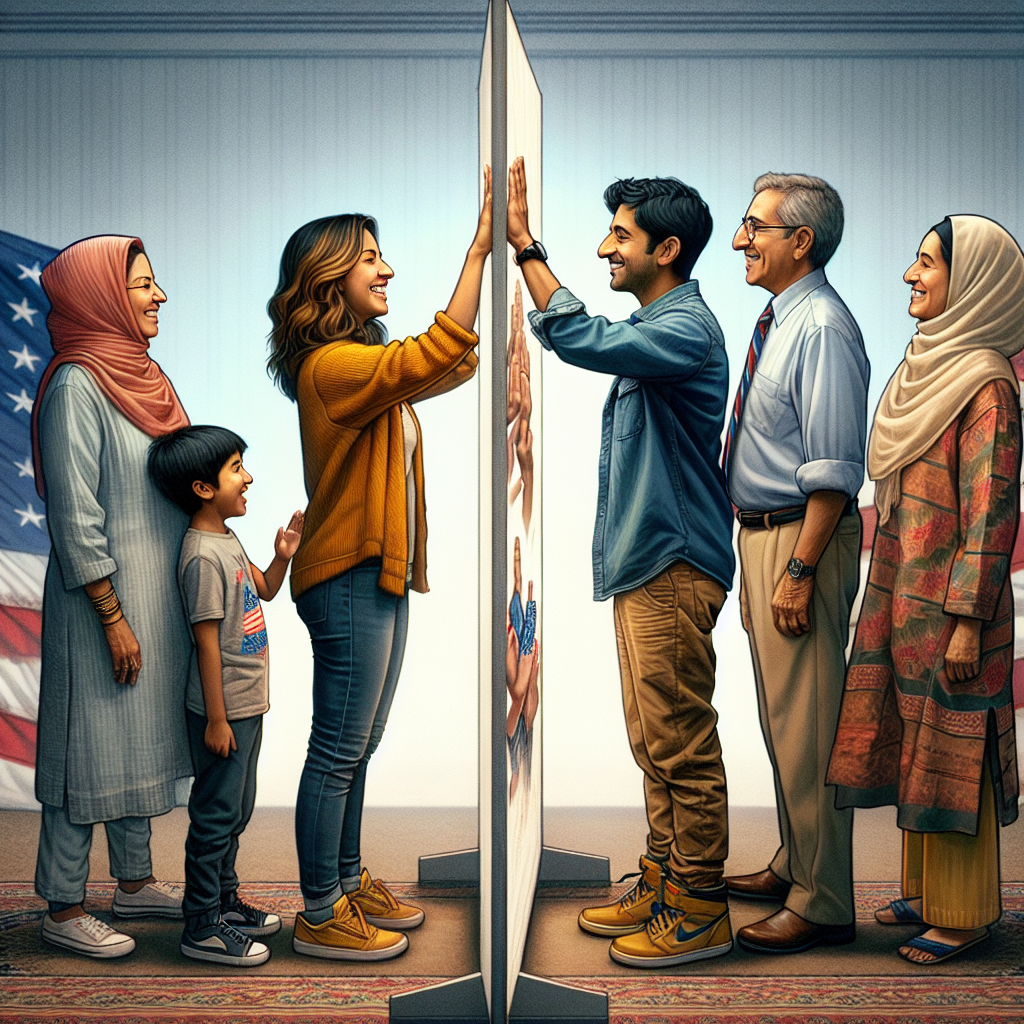Family Karma, a groundbreaking reality television show airing on Bravo, takes a unique approach to the representation of South Asian Americans. Premiering in March 2020, the series follows the lives of several young Indian American adults living in Miami, providing viewers with an intimate window into the complexities of family dynamics, cultural identity, and the challenges faced by this demographic in America. The show stands out for its authentic portrayal of the South Asian American experience, and through its engaging narrative, it invites audiences to explore the breakthroughs and challenges that define these families.
The Background
Family Karma is more than a reality show; it serves as a cultural touchstone for South Asian Americans, highlighting the nuances of navigating two worlds. The participants are descendants of Indian immigrants, and as such, they grapple with the expectations of their families while trying to forge their own identities. In doing so, they showcase the generational differences within immigrant families, particularly those related to marriage, career choices, and cultural practices.
The show uniquely positions itself in the larger landscape of reality television. Whereas many shows may rely on stereotypes or superficial representations, Family Karma employs storytelling that highlights the richness of South Asian culture. It celebrates traditional dances, festivals, and family gatherings while addressing contemporary issues such as mental health, the pursuit of love, and professional aspirations.
The Breakthroughs
Cultural Representation
One of the most significant breakthroughs that Family Karma represents is the authentic depiction of South Asian culture. In a media landscape that often sidelines diverse narratives, Family Karma provides a platform that celebrates traditions, voices, and stories. The characters, such as Amrit Kapai and Vishal Parvani, articulate their experiences particularly well, showcasing a blend of conventional expectations and modern aspirations.
By exploring themes such as arranged marriages, community pressures, and the importance of family, the show fosters understanding among viewers from different backgrounds. It offers insight into the South Asian American experience while also allowing South Asian audiences to see themselves represented positively on national television.
Conversations about Mental Health
Another critical breakthrough highlighted in Family Karma is the conversation around mental health in South Asian communities. Traditionally, mental health issues have been stigmatized, often brushed aside or discussed in hushed tones. Family Karma’s portrayal of characters grappling with anxiety, depression, and seeking help serves as a vital depiction of the larger narrative around mental health, particularly in immigrant families.
A notable example is the journey of character Richa Sadana, who openly discusses her struggles and the importance of breaking down societal barriers around mental health. By putting these issues front and center, Family Karma not only supports individuals dealing with similar challenges but also helps educate a broader audience about the importance of mental health awareness.
Bridging Generational Gaps
Family Karma also tackles the generational gap that exists within immigrant families. It illustrates how values and aspirations change over time, leading to conflicts between parents and children. The struggle to blend traditional values with modern lifestyles becomes a point of contention, particularly for the younger generation striving for independence from cultural norms while wanting to honor their heritage.
For instance, as Richa and Amrit navigate their romantic relationships, they often find themselves at odds with their families’ expectations, reflecting the challenges many young South Asian Americans face today. The show weaves these challenges into its plotlines, encouraging dialogue about the importance of cultural preservation while allowing newer generations the freedom to chart their own paths.
The Challenges
Navigating Identity
Despite the numerous breakthroughs, the South Asian American community faces a myriad of challenges, as highlighted in Family Karma. Identity remains a central theme, with cast members often wrestling with their cultural identity and the pressure to conform to societal expectations. Travelling through both their ancestral and American roots, many characters articulate feelings of being caught between two worlds — a sentiment familiar to many immigrants and their descendants.
The internal conflict surrounding identity leads to poignant moments on the show where cast members confront their heritage, sometimes leading to feelings of alienation. This struggle can become particularly intense during crucial life events like weddings or career milestones, where cultural expectations may clash with personal desires.
Family Expectations and Pressures
Family Karma also delves into the often immense pressure that comes from family expectations. In many South Asian households, there is a strong emphasis on success, whether it be in education, careers, or relationships. This pressure can lead to anxiety and internal conflict for the characters, as they seek to meet their family’s expectations while pursuing their dreams. The show reflects this very real dynamic, illustrating the emotional toll that such expectations can take on individuals.
For instance, Vishal’s story arc often illustrates the struggle between his aspirations and familial expectations, particularly regarding marriage. The ever-present worry of disappointing parents becomes a recurring theme, and it often leads to emotional conversations that resonate with many viewers who’ve faced similar pressures in their own lives.
Cultural Misunderstandings
As Family Karma weaves its narrative, it also reveals cultural misunderstandings that can occur not only within families but also between different communities. Characters face instances where their traditions may be misinterpreted by friends or partners outside their culture. These moments can lead to tension and discomfort, further complicating relationships.
In one poignant episode, a character feels that their family’s customs are not being respected during an important event, highlighting the need for empathy and understanding in cross-cultural situations. Such discussions remind audiences of the importance of cultural sensitivity, a theme that resonates strongly in today’s increasingly multicultural society.
Conclusion
Family Karma has made an indelible mark on reality television by authentically showcasing the lives, challenges, and breakthroughs of South Asian American families. With its deep-rooted cultural narratives and relatable personal struggles, it provides a multi-faceted exploration of identity, family, and mental health. Through the lens of its dynamic cast, the show serves as both a reflection of evolving cultural landscapes and a celebration of heritage, paving the way for broader dialogues related to cultural representation and community understanding.
As the show continues, it will undoubtedly facilitate further conversations about the complexities of the South Asian American experience, highlighting both the breakthroughs and challenges that define this vibrant community.
FAQs
Q: What is the premise of Family Karma?
A: Family Karma follows the lives of young Indian American adults living in Miami, showcasing their cultural heritage, family dynamics, and personal challenges.
Q: When did Family Karma first air?
A: Family Karma premiered on March 8, 2020, on Bravo.
Q: What themes does Family Karma explore?
A: The show explores themes such as cultural identity, mental health, generational differences, family expectations, and the complexities of navigating life as a South Asian American.
Q: How does Family Karma differ from other reality shows?
A: Unlike many reality shows that rely on stereotypes, Family Karma offers a nuanced portrayal of the South Asian American experience, promoting discussions about heritage and identity.
Q: What impact has Family Karma had on the South Asian American community?
A: The show has fostered conversations about mental health, cultural representation, and the challenges faced by South Asian American families, ultimately increasing visibility and understanding of this demographic.
It looks like you might want some help with a prompt! Could you please provide more details or specify the topic or type of prompt you’re looking for? Whether it’s writing, brainstorming ideas, or something else, I’m here to assist!, #Family #Karma #Examining #Breakthroughs #Challenges #South #Asian #American #Families, #Family #Karma #Examining #Breakthroughs #Challenges #South #Asian #American #Families, 1736378165, family-karma-examining-the-breakthroughs-and-challenges-of-south-asian-american-families





